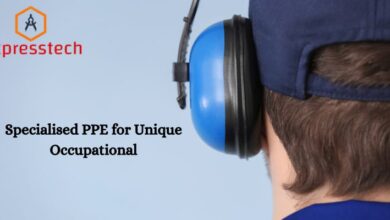Why Getting a BSN is the Best Way to Change Your Career to Nursing?

If you are tired of your current career and want to get into a type of work where the demand is high, job security is great and there is a real demand for what you do, it’s worth thinking about changing your career to nursing.
If you want to start a new career as a nurse, there are several different options to consider when it comes to your education and training. You can get an associate’s degree in nursing as the cheaper and faster option for getting into this career; however, getting a BSN is often worth the additional cost, time and effort.
This is because more and more employers are actively looking to hire BSN-educated nurses due to reports that show that the more nurses with a BSN there are in the workforce, the better the outcome for patients.
Related topic: Who Should Consider a DNP?
Accelerated BSN
If you are currently working in a different career and want to get into nursing as quickly as possible, an accelerated BSN might be a better alternative to getting an associate’s degree in nursing.
If you already have a bachelor’s degree in a different subject, a non-nursing degree to BSN online program from Baylor University will allow you to build on the knowledge and skills that you have already gained as a college student in the past, making it possible for you to qualify as a nurse with a BSN in half the time you’d expect it to take with a traditional four-year BSN program.
Improve Your Career Choices
If you want to get into nursing so that you can move up through the ranks in this career and get into advanced roles such as nurse practitioner, then a BSN will be your best option.
While an associate’s degree will get you into a role as a registered nurse, it will often stop there since a BSN is typically the minimum requirement for advanced nursing degrees like an MSN, which you will usually be required to get if you want to work as a nurse leader, nurse practitioner, nurse educator or in another advanced nursing role. Along with this, a BSN is becoming increasingly important for specialist nurses such as ICU nurses, neonatal nurses and operating room nurses.
Higher Demand
Today there is a higher demand for nurses who are educated with a BSN, due to healthcare employers actively looking to hire nurses who have this qualification. Statistics show that around 80% of healthcare employers are proactively looking to take on BSN-educated nurses.
This is because studies have shown that with more BSN-educated nurses in the workforce, patient outcomes are improved. Along with this, hiring more nurses who have a BSN will also improve an employer’s chance of being awarded Magnet status.
Improve Patient Care
For most nurses, the standard of patient care is a huge concern. Many people who get into the nursing profession are willing to do what it takes to improve the standards of patient care as much as possible. Getting a BSN will equip you to do this as a nurse. The shift to preventative care in the healthcare system and more patient-centered systems that focus on collaborative practice models and integrative care systems are things that you will be better-prepared for after graduating with a BSN.
On the other hand, the associate’s degree in nursing is more focused on technical skills. Statistics show that when just ten percent of nurses in a healthcare environment have a BSN, patients experience faster recovery times, lower readmissions to hospital, reduced patient fatalities, and a lower rate of infections and diseases caught while in the hospital.
Improved Earning Potential
Along with better career advancement prospects and higher demand overall, nurses with a BSN can also earn more compared to nurses with a less advanced qualification.
Nurses with a BSN tend to have the best earning potential compared to nurses with an associate’s degree, along with a wider range of options to boost their salaries even further with advanced training that will qualify them to work in advanced positions such as the nurse practitioner role.
More Employer Support
If you are currently a registered nurse with an associate’s degree, you may find that your employer is very supportive when it comes to improving your qualifications and helping you get a BSN.
If you’re currently working as a registered nurse and want to improve your career by getting a BSN, you may not be required to cover the entire cost of getting this qualification on your own,
since more employers are seeking BSN-educated nurses, and helping you get to this point in your career might be easier for your employer compared to hiring new employees. More and more employers are now offering educational support for nurses who want to get a BSN, including assistance with tuition.
Find Work Faster
Another benefit of changing your career to nursing with a BSN is that it could be the difference between finding work immediately and job searching for some time. With the high demand for nurses right now coupled with the growing number of employers searching for BSN-educated nurses,
it is no surprise that nurses who graduate with this degree are often the first choice for positions in many different healthcare environments, making it easier for you to find work as soon as you have your license and are eligible to start.
It Might be a Minimum Requirement
Finally, getting your BSN will protect your career in the future if there comes a time when having a BSN is the minimum qualification requirement for nurses. Right now, this is already happening in New York State since the new BSN-in-10 law was introduced, requiring all nurses without a BSN to get one within ten years of starting in their role.
Other states have plans in place to follow suit, and eventually it is expected that all nurses will be required to have a BSN as part of the continuous improvement in healthcare. Getting one now means less stress further down the line, as your job will be safe regardless.
If you want to change your career to nursing, the best way to do this is by getting a BSN.





